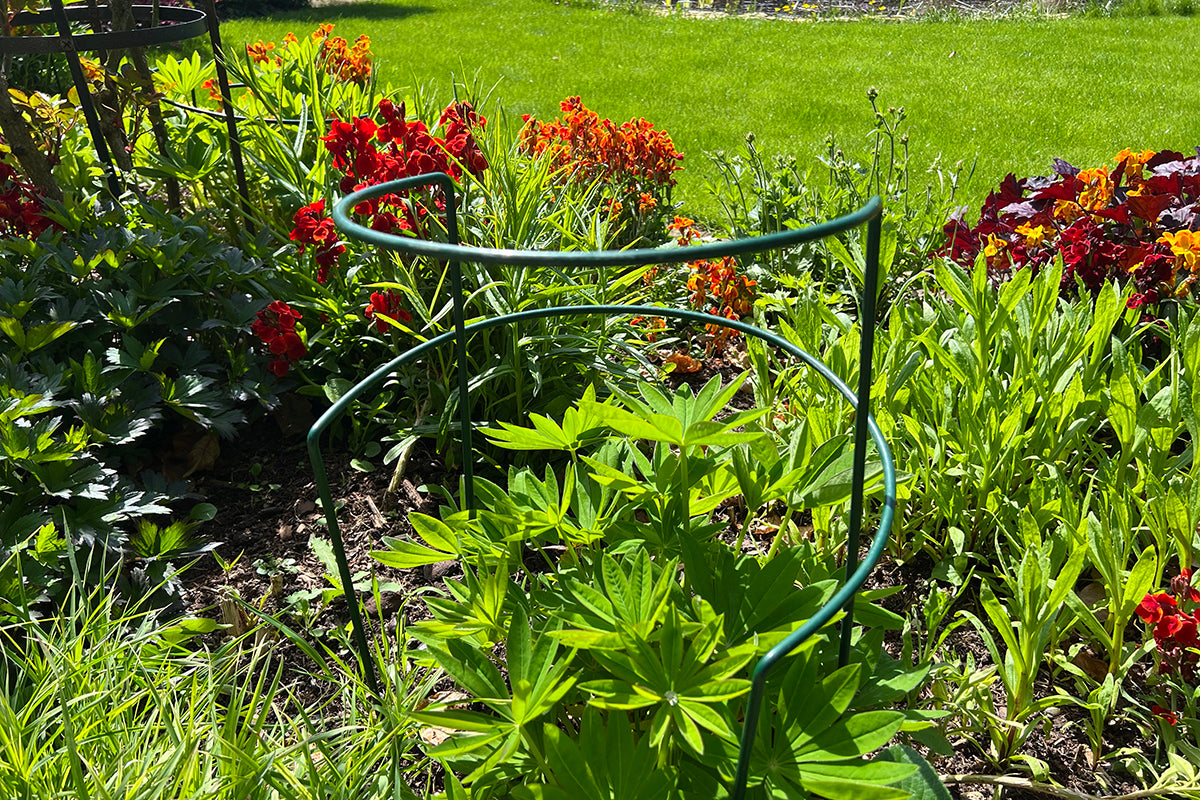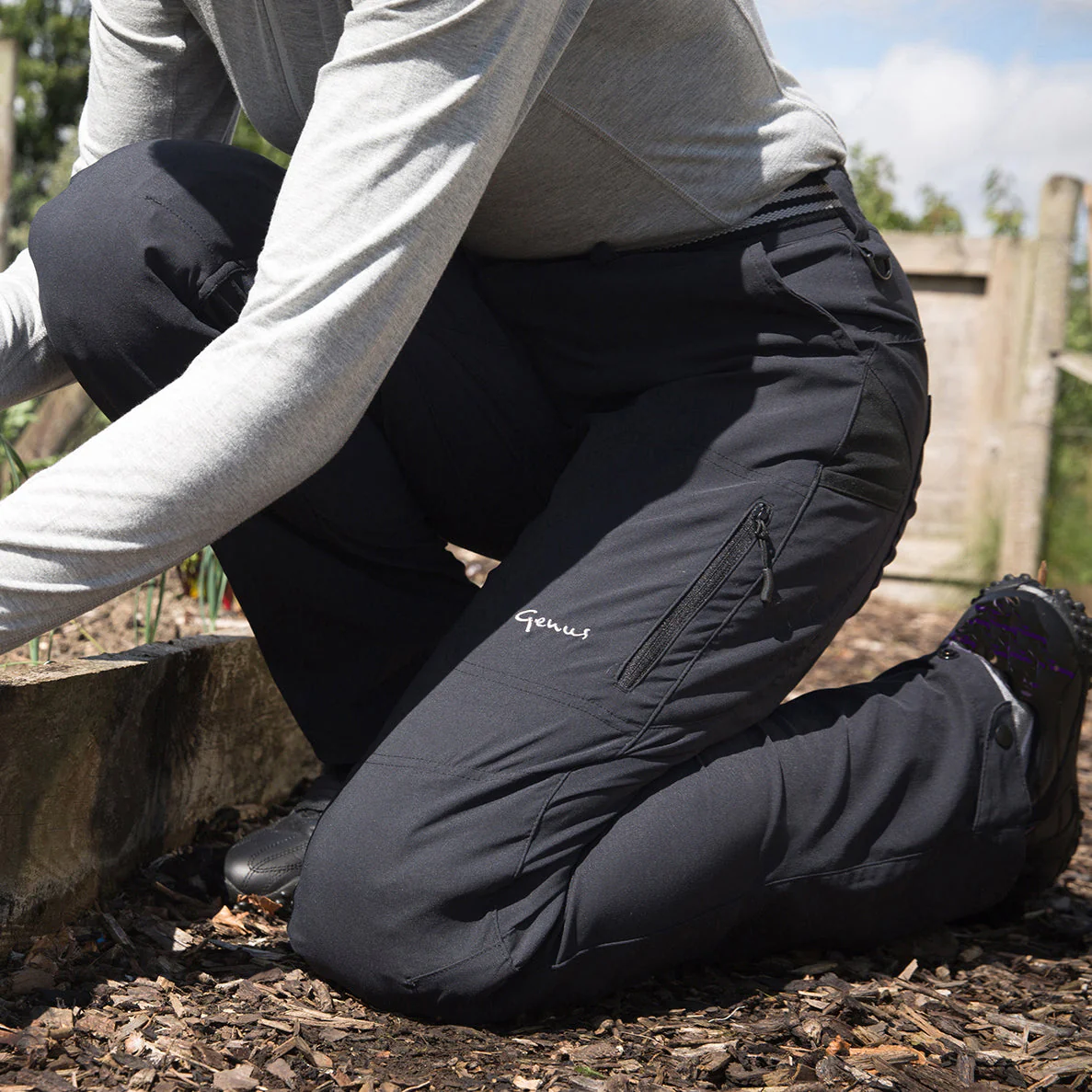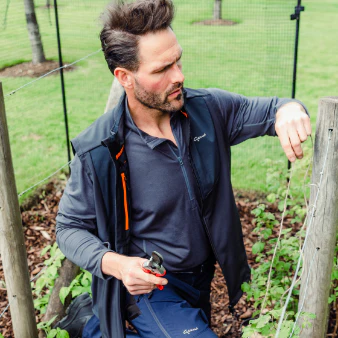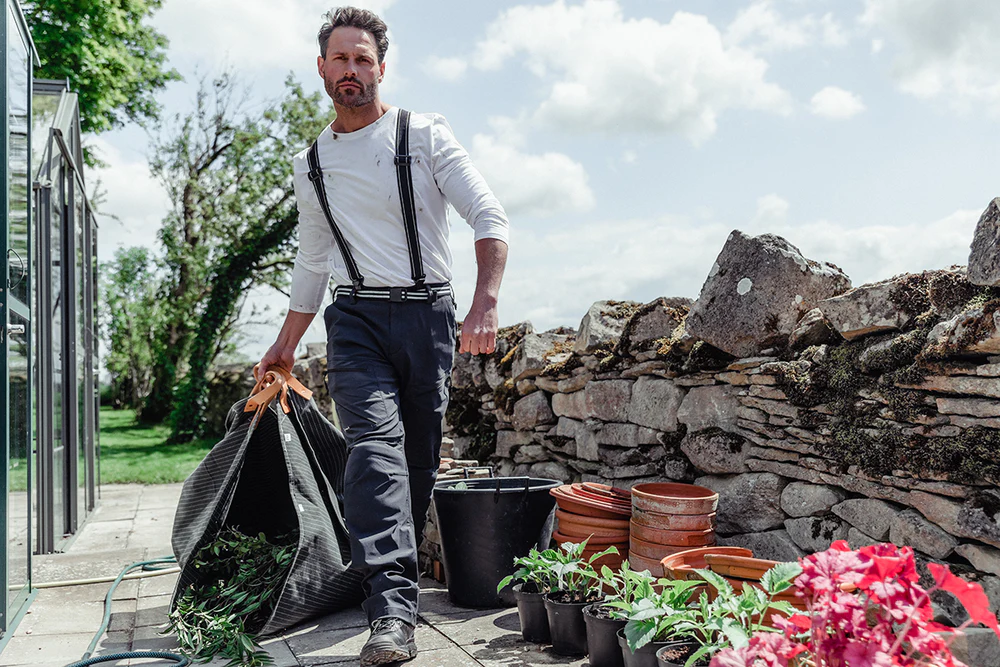To Dos in May

High Stakes
You’ll need to stake many of the taller or floppy perennial plants this month. Whether with off the shelf supports, hazel wands, willow baskets, or canes, they need to be sturdy to accommodate the plant within. Tall large flowered dahlias or mop-head hydrangea can exert a huge amount of pressure on a flimsy support system, especially when wet, so don’t be afraid of over-engineering. The materials used may seem a little ‘in your face’ at the moment but will very soon disappear beneath the lush spring growth.
Chelsea Chop
A black belt in horticulture isn’t required to administer the Chelsea Chop. So called because it is often practised during the week of the Chelsea Flower Show. it involves cutting back the stems of certain perennial plants to encourage branching, leading in turn to more flowers, and shorter, more robust plants. On some plants it can remove the necessity of staking totally. Plants that respond well include perennial sunflowers such as ‘Lemon Queen’, Echinacea, Rudbeckia, Heleniums, and Achillea.
Planting Out
This is the month for planting out your half hardy annuals or tender perennials that have been brought into growth or sown in the greenhouse. They’ll need to be hardened off before the move however, so start by leaving the windows of the greenhouse open throughout the day for a few ,and then throughout the night. A few days outside during the day will also help acclimatise them to cooler conditions. Find out the last expected dates for frost in your area and plant out after that. If you’ve planted them out and frost threatens, cover them at night with fleece or even old pots or buckets to give them some added protection.











